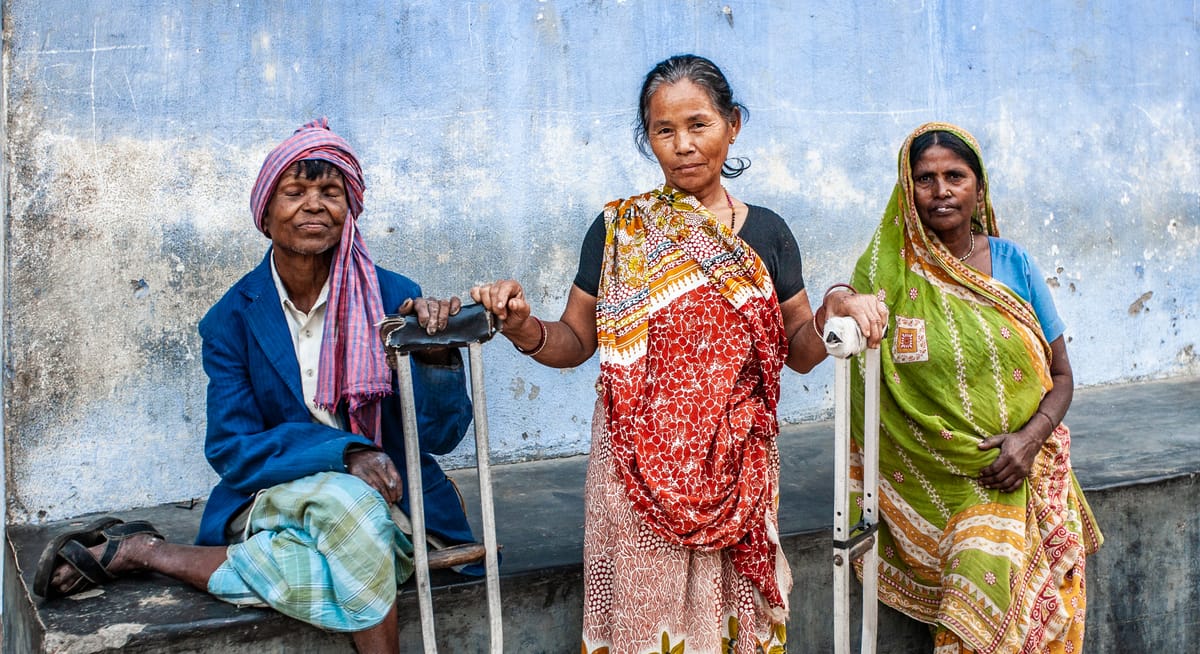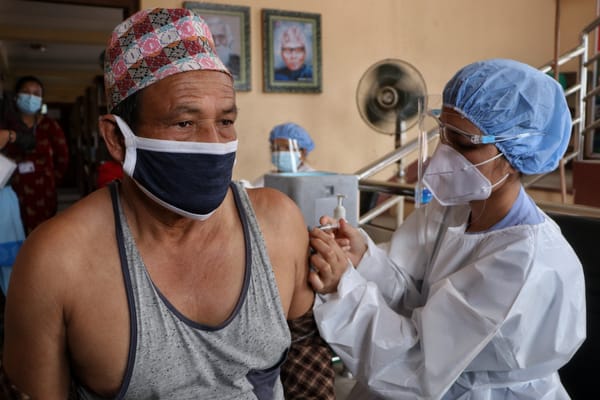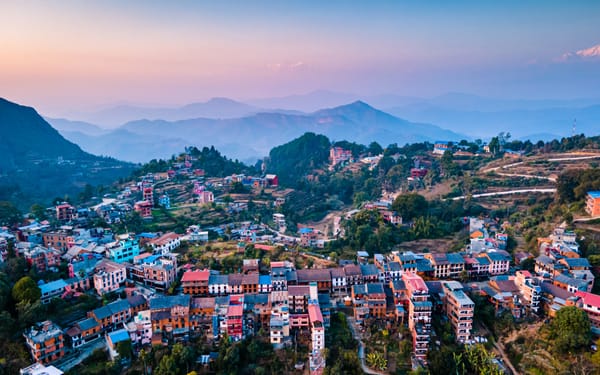From Silence to Service: Giving Voice to Nepal’s Underserved Communities

In the remote highlands and hidden valleys of Nepal, countless communities live beyond the reach of modern healthcare, economic opportunity, and political influence. They do not appear in headlines. Their struggles do not spark international outrage. Their suffering unfolds quietly — not through explosive catastrophe, but through the slow erosion of dignity and the heavy weight of neglect.
These are Nepal’s underserved communities. Their lives are not marked by rebellion or protest, but by silence — the most dangerous and insidious form of marginalization.
For generations, this silence has cost lives. It has permitted health inequity, structural poverty, and systemic neglect to thrive unchecked. Malla Medical exists to break that silence. Our mission is simple but absolute: to move these communities from voiceless invisibility to empowered agency — not through charity, but through structural transformation that places them at the center of their own future.
The Geography of Disadvantage
Nepal’s geography is both its greatest beauty and its greatest curse. The towering Himalayas, lush hills, and sweeping plains create one of the most diverse landscapes on earth — but this natural splendor also fragments its people. In many rural districts, the journey to the nearest health post or government office may involve hours or days of walking. Treacherous trails, monsoon floods, and harsh winters regularly sever entire villages from essential services.
In these regions, healthcare infrastructure either does not exist or exists in name only. Clinics sit empty, unstaffed, or unequipped. Entire communities may rely on a single, barely trained health worker. Medicines run out. Diagnostic tools are absent. Pregnant women deliver babies without medical assistance. Injuries fester. Chronic illnesses go undiagnosed for years.
But geography is not the true cause of these failures. Geography explains difficulty — not indifference. The real barrier is systemic: policy structures that prioritize urban centers, economic interests that serve the few, and institutional frameworks that have long dismissed rural populations as unprofitable, inconvenient, or too difficult to serve.
The Power of Silence
Silence allows these failures to persist.
The silence of those in power, who quietly accept that some lives are harder to save.
The silence of international systems, which measure progress through national averages while regional inequities deepen.
And even the silence of the affected communities themselves, long conditioned to believe that suffering is simply part of life.
This is the most devastating consequence of systemic marginalization — not just the denial of services, but the internalized acceptance of neglect as normal.
It is into this silence that Malla Medical steps — not to speak for these communities, but to help amplify their voices and build permanent capacity that empowers them to speak, act, and lead their own future.
Breaking the Silence: A New Model of Service
Malla Medical was founded on a simple but powerful premise: wherever the formal healthcare system stops, we begin.
We do not offer temporary clinics or one-time medical missions. We build systems — systems that function within the realities of remote, fragmented geographies. Systems that belong to the communities themselves. Systems designed for permanence.
1. Community-Based Research
Our work begins with listening. We walk the same trails, sit in the same homes, and engage directly with local leaders, women’s groups, health volunteers, and patients. Every intervention we build is informed by the lived realities of the people who have been left unheard for too long.
Through this field-based research, we map not just distances, but barriers of trust, cultural norms, local beliefs, and systemic failures that have rendered so many healthcare models ineffective.
2. Localized Workforce Development
We reject the dependency model that sends temporary foreign experts into communities for short bursts of care. Instead, we invest in local capacity — identifying, training, and certifying community health workers who live within the very villages they serve.
These individuals are not outsiders. They are trusted neighbors, mothers, elders, and youth who understand both the cultural language and the practical challenges of delivering care in their own environment.
3. Mobile and Telemedicine Solutions
In regions where permanent infrastructure may never fully reach, we deploy mobile healthcare units equipped with diagnostic tools, essential medicines, and portable technology. When possible, we leverage solar-powered telemedicine stations that allow remote consultations with physicians based in urban centers or abroad.
This hybrid model of physical and digital service delivery allows high-quality care to reach populations that once seemed unreachable.
4. Culturally Integrated Health Education
We believe that knowledge is power — and that power belongs within the community. Our education programs are developed in local languages and designed to respect, not override, traditional beliefs. We work with respected community leaders and even traditional healers to ensure that modern medical knowledge is introduced in a way that builds trust rather than conflict.
From Recipients to Leaders
True service does not seek to rescue; it seeks to empower.
Our ultimate goal is not to remain in these communities indefinitely, but to help them build autonomous, sustainable systems that they fully own. The health aides we train become the educators of the next generation. The data we gather informs local governance. The partnerships we foster strengthen inter-village collaboration.
In time, these formerly voiceless communities become fully integrated advocates for their own health futures — not dependent on foreign aid, but fully capable of managing their own care systems.
A Global Silence
Although our work began in Nepal, the crisis of silence is not unique to any one country. Across the world, in both low-income and high-income nations, entire populations live outside the functional reach of healthcare systems. Indigenous communities, isolated rural towns, urban slums — all face the same structural invisibility, though the settings may differ.
In developed countries, remote Native American reservations, rural farming counties, and inner-city health deserts echo the same silent neglect found in Nepal’s hills. The language changes. The flags change. But the silence sounds the same.
Malla Medical’s mission is global because silence is global.
And so must be the service that dismantles it.
Why Health Equity Cannot Wait
Every day that this silence continues, lives are lost that should have been saved. Every day that policymakers delay, people endure preventable suffering. The tools, technology, and knowledge to solve these problems already exist. What is lacking is not technical ability, but institutional will.
Healthcare cannot remain a system built for convenience. It must become a system that reaches outward — into the hardest places, for the most vulnerable people, with the greatest urgency.
The Path Forward
Malla Medical does not accept small ambitions. Our vision is to:
- Build scalable remote care models that operate globally.
- Train and certify thousands of community health workers.
- Create the world’s first global remote health gap map.
- Partner with governments to enact structural reform that permanently closes access gaps.
This work is not humanitarian work.
It is not charity.
It is structural justice.
Conclusion: From Silence to Service
Silence allows injustice to thrive. It creates invisible walls that isolate entire populations from the most basic human right — the right to health.
Malla Medical exists to break that silence — permanently.
We are not driven by sentiment.
We are driven by obligation.
We will continue to serve, to build, and to fight for a world where no community remains invisible, no patient remains unheard, and no life is lost to the cruelty of distance or indifference.
From silence to service — this is our mission. This is our mandate.



